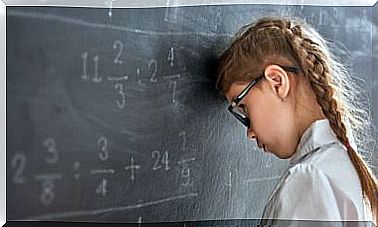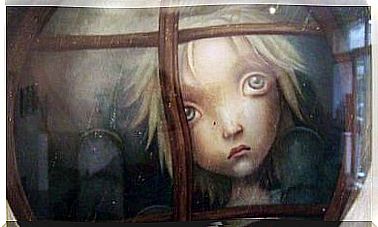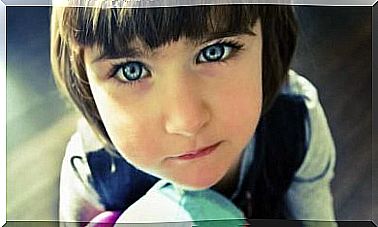How Does Maternal Depression Affect Children?

Depression during pregnancy or after childbirth is a more prevalent reality than we would like to think. Many women, however, continue to suffer from this disease for many years, with consequences that manifest themselves on the education of children. Knowing how maternal depression affects children is the first step in taking appropriate measures.
Many of the symptoms of depression are easily confused with the normal experiences that characterize pregnancy and postpartum. For this reason, there is a high risk that many women will not receive a timely diagnosis and that the severity of their disease will worsen.
However, the consequences of depression are not limited to affecting the woman who suffers directly, but also affect the children. Since early childhood is a critical stage of development, early experiences can exert an influence that extends to later stages in life.
How does maternal depression affect children?
Since pregnancy, the children of depressed mothers have a higher heart rate. The risk of premature birth and low birth weight is also set to increase. Later, then, these babies prove less active and less sensitive to facial and vocal expressions. They also have a higher level of stress hormones than other children.

On the other hand, these children have a greater predisposition to develop mood disorders and present difficulties of adaptation at a social and school level. Maternal depression is equally likely to affect the child’s intellectual awareness and quality of health. In particular, they have an increased risk of developing depression in their lifetime.
However, not all children of depressed mothers show these difficulties. This suggests that this is not a direct and univocal relationship, but indicates the presence of some mediating factors.
How does this influence occur?
The quality of the bond
Establishing an adequate attachment relationship is essential for the child’s well-being. However, depressed mothers have difficulty in correctly perceiving their children’s needs and interpreting their manifestations. All this causes less mother-child synchrony and creates great confusion in the baby.
Whether it happens because the mother is unable to meet the baby’s needs or because the response she provides to her needs is inappropriate, the attachment that is established is insecure. It is this inadequate bond that ends up producing emotional consequences for the little one. But it is depression that prevents the mother from perceiving and responding correctly to the signals displayed by the baby.
Marital conflicts
Another of the areas on which the consequences of maternal depression are most prominent is the relationship between parents. When one of the members of the couple suffers from a disease such as depression, their life together is inevitably involved.
In these cases, the positive communication between the two is reduced almost to a minimum, while quarrels and recriminations predominate. Furthermore, in general, conflict resolution is not achieved, with a consequent escalation of the situation. Observing parental conflict considerably affects the functioning of the child in numerous areas.

Inadequate stimulation
Finally, mothers suffering from depression are less involved in raising children. Because of their own apathy and despondency, they offer them fewer learning experiences and opportunities, and they spend less time on their sensory and intellectual stimulation.
Furthermore, they represent an inappropriate role model for the child. The little one grows up observing some behavior patterns in which decay and lack of interest and vitality predominate. To a greater or lesser extent, the continued presence of this pattern as they grow will have an effect on their personality.
Avoid maternal depression affecting children
If we want to avoid this situation, the first thing we need to do is deal with the mother’s depression. It is important that we remain alert to the presence of any symptoms, especially after childbirth, and that we are not afraid to ask for help.
In addition to receiving professional treatment, however, we can try to minimize the consequences that affect children through mediating factors. Providing little ones with stimulation and response to their needs and ensuring that they can enjoy a positive home environment will help to lessen the influence of depression on children’s growth.









